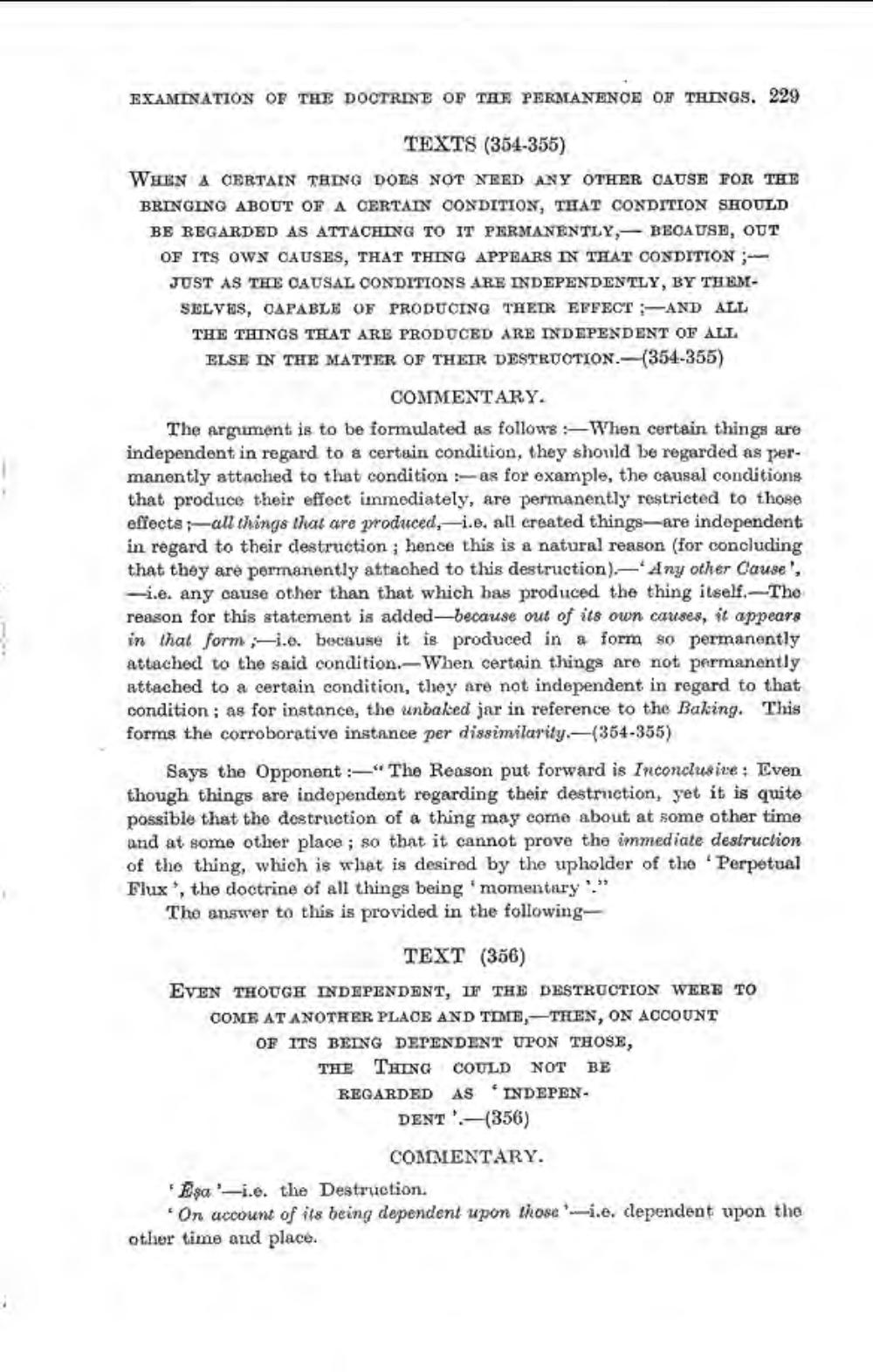________________
EXAMINATION OF THE DOCTRINE OF THE PERMANENCE OF THINGS. 229
TEXTS (354-355) WHEN A CHRTAIN THING DOES NOT NEED ANY OTHER CAUSE FOR THE BRINGING ABOUT OF A CERTAIN CONDITION, THAT CONDITION SHOULD BE REGARDED AS ATTACHING TO IT PERMANENTLY, BECAUSE, OUT OF ITS OWN CAUSES, THAT THING APPEARS IN THAT CONDITTON -- JUST AS THE CAUSAL CONDITIONS ARE INDEPENDENTLY, BY THEMSELVOS, CAPABLE OF PRODUCING THEIR EFFECT AND ALL THE THINGS THAT ARE PRODUCED ARE INDEPENDENT OF ALL ELSE IN THE MATTER OF THEIR DESTRUOTION.- (354-355)
COMMENTARY. The argument is to be iormulated as follows When certain things are independent in regard to a certain condition, they should be regarded as permanently attached to that condition as for example, the causal conditions that produce their effect immediately, are permanently restricted to those effects all things that are produced,—i.B. all created things are independent in regard to their destruction; hence this is a natural reason (for concluding that they are permanently attached to this destruction).- Any other Cause', -i.e. any cause other than that which has produced the thing itself. --The reason for this statement is added because out of its own causes, it appears in that form, i.e. because it is produced in a form so permanently attached to the said condition.-When certain things are not permanently attached to a certain condition, they are not independent in regard to that condition; as for instance, the unbaked jar in reference to the Baking. This forms the corroborative instance per dissimilarity.—(354-355)
Says the Opponent :-"The Reason put forward is Inconclusive: Even though things are independent regarding their destruction, yet it is quite possible that the destruction of a thing may come about at some other time and at some other place; so that it cannot prove the immediate destruction of the thing, which is what is desired by the upholder of the Perpetual Flux, the doctrine of all things being momentary'."
The answer to this is provided in the following
TEXT (356) EVEN THOUGH INDEPENDENT, IF THE DESTRUCTION WERE TO COME AT ANOTHER PLACE AND TIME, THEN, ON ACCOUNT OF ITS BEING DEPENDENT UPON THOSE,
THE THING COULD NOT BE REGARDED AS INDEPEN
DENT'-(356)
COMMENTARY. Esa-i.e. the Destruction.
On uccount of its being dependent upon those i.e. dependent upon the other time and place.




